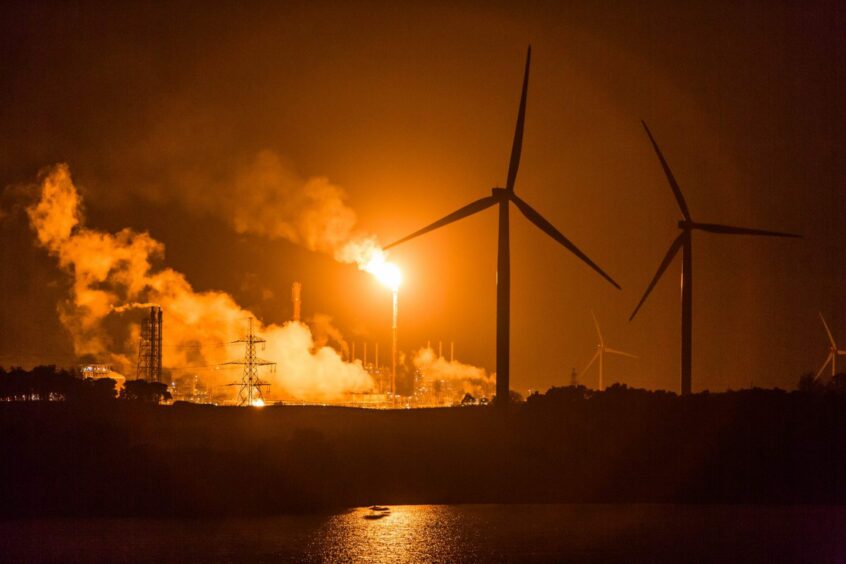 © Supplied by DCT
© Supplied by DCT The High Court has ruled the UK government’s climate action plan is unlawful for the second time in a case brought by environmental groups.
In a ruling last Friday, the High Court found the government breached the Climate Change Act when it adopted the Carbon Budget Delivery Plan (CBDP).
This is the second time the High Court has ruled the CBDP, the government’s strategy for meeting legally binding climate targets, to be unlawful following a similar challenge in July 2022.
The energy secretary Claire Coutinho is now expected to have to draw up a revised plan within 12 months.
The new plan must ensure the UK achieves its legally binding carbon budgets and the country’s pledge to cut emissions by over two thirds by 2030, neither of which the government is currently on track to achieve.
Climate campaigners victorious
The case against the Department for Energy Security and Net Zero (DESNZ) was brought by campaign groups Friends of the Earth, ClientEarth, and the Good Law Project.
In his ruling on Friday, Mr Justice Sheldon upheld four of the five grounds of the groups’ legal challenge, stating that the decision by the former energy security and net zero secretary Grant Shapps to approve the CBDP was “simply not justified by the evidence”.
“If, as I have found, the secretary of state did make his decision on the assumption that each of the proposals and policies would be delivered in full, then the secretary of state’s decision was taken on the basis of a mistaken understanding of the true factual position,” he said.
The court agreed that the Secretary of State was given “incomplete” information about the likelihood that proposed policies would achieve their intended emissions cuts. This breached section 13 of the Climate Change Act which requires the Secretary of State to adopt plans and proposals that she considers will enable upcoming carbon budgets to be delivered.
The court also agreed with ClientEarth and Friends of the Earth that the plan’s central assumption that all its policies would achieve 100% of their intended emissions cuts was wrong. The judge said the Secretary of State had acted irrationally, and on the basis of an incorrect understanding of the facts.
‘Embarrassing defeat’ for UK government
Friends of the Earth lawyer Katie de Kauwe said the decision was “another embarrassing defeat for the government”.
“We’ve all been badly let down by a government that’s failed, not once but twice, to deliver a climate plan that ensures both our legally binding national targets and our international commitment to cut emissions by over two thirds by 2030 are met,” she said.
“Cutting emissions isn’t only essential to avert the worst of climate breakdown, it will create long term jobs in green industries of the future, boost energy security, bring down our bills and end our reliance on costly fossil fuels.
“We urgently need a credible and lawful new action plan that puts our climate goals back on track and ensures we all benefit from a fair transition to a sustainable future.”
ClientEarth senior lawyer Sam Hunter Jones said the government now has a “golden opportunity” to reduce emissions.
“Actions such as public transport investment and a home insulation roll-out will create new jobs, lower costs and provide energy security now and for generations to come – as well as putting us on track to meet our legal targets,” he said.
Good Law Project legal director Emma Dearnaley said the campaign groups will continue to push for accountability and greater ambition from the UK government.
“This welcome ruling shows that the law is our best – and often last – line of defence against a government that is failing to act as it must to address the climate emergency,” she said.
UK can be ‘proud of its record’ on climate
A spokesperson for DESNZ told the Guardian newspaper that the UK can be “hugely proud of its record on climate change”.
“Not only are we the first major economy to reach halfway to net zero, we have also set out more detail than any other G20 country on how we will reach our ambitious carbon budgets.
“The claims in this case were largely about process and the judgment contains no criticism of the detailed plans we have in place.
“We do not believe a court case about process represents the best way of driving progress towards our shared goal of reaching net zero.”
The win for environmental campaigners is the latest in a flurry of legal action taken against governments and fossil fuel producers.
Activists in Norway recently won a case concerning downstream emissions from North Sea oil and gas fields, while Shell recently appeared in a Dutch court to appeal a landmark ruling ordering the oil and gas supermajor to cut its carbon emissions by 45% by 2030.
Climate activists in Switzerland also recently won a case against the Swiss government, while cases against the approval of Equinor’s Rosebank oil field and Shell’s Jackdaw project are ongoing.



